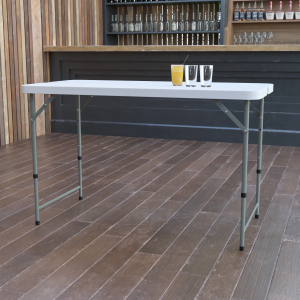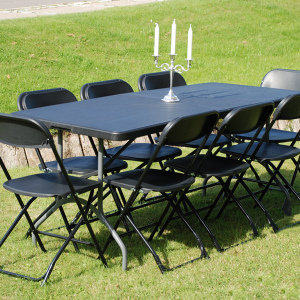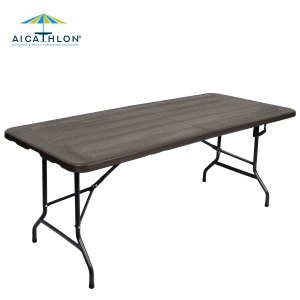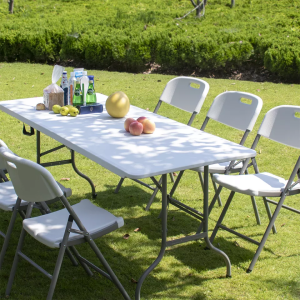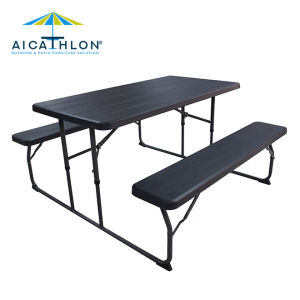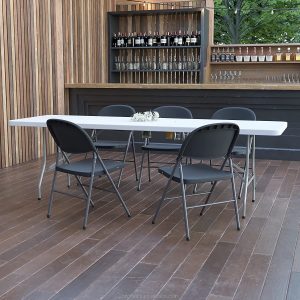More
Locked in Stability: The Importance of the Locking Mechanism in Plastic Folding Tables
Locked in Stability: The Importance of the Locking Mechanism in Plastic Folding Tables
Introduction
Plastic folding tables have become go-to furniture for their convenience and adaptability in various settings. While their foldable design offers easy storage and portability, one crucial feature that ensures their stability and wobble prevention is the locking mechanism. The locking mechanism in plastic folding tables plays a vital role in keeping the table securely in place when in use. In this blog post, we will delve into the significance of the locking mechanism in plastic folding tables, highlighting how it contributes to stability and wobble prevention, making these tables reliable assets in any environment.
-
Ensuring Stability during Use
The locking mechanism in plastic folding tables is designed to keep the table securely in its open position during use. Once the table is fully extended, the locking mechanism engages, preventing accidental collapses or buckling. This stability is essential in creating a safe and reliable surface for various activities, from dining to working or presenting.
-
Wobble Prevention for Improved User Experience
A well-functioning locking mechanism is instrumental in preventing wobbling or shaking of the plastic folding table. Wobble-free tables provide a more pleasant user experience, especially during tasks that require a stable surface. Whether it’s writing, crafting, or displaying products at an event, a sturdy and wobble-free table ensures better performance and efficiency.
-
Safety Considerations
The locking mechanism not only enhances stability but also ensures the safety of users. It eliminates the risk of sudden collapses that could potentially cause injuries. Reliable locking mechanisms are built with safety features that firmly hold the table in place, giving users peace of mind when using the table for various purposes.
-
Impact on Weight-Bearing Capacity
The locking mechanism also directly impacts the weight-bearing capacity of the plastic folding table. A secure locking mechanism allows the table to support heavier loads without compromising stability. For commercial use or heavy-duty applications, tables with robust locking mechanisms are preferred to accommodate larger loads.
-
Easy Set-Up and Fold-Down
While stability is crucial during use, the locking mechanism should also be user-friendly for easy set-up and fold-down. A well-designed locking mechanism allows users to securely lock the table into place with minimal effort. Similarly, it should be easy to release the lock when folding the table for storage or transportation.
-
Durability and Longevity
The quality of the locking mechanism also affects the durability and longevity of the plastic folding table. High-quality materials and precise engineering ensure that the locking mechanism remains reliable and effective even after extended use. Investing in tables with sturdy locking mechanisms translates to a longer lifespan and reliable performance over time.
Conclusion
The locking mechanism in plastic folding tables is a critical component that ensures stability, wobble prevention, and safety during use. A well-designed and reliable locking mechanism provides users with a stable surface for various activities, from dining and working to presenting and displaying. It enhances the user experience by eliminating wobbling or shaking, promoting efficient performance. Additionally, a secure locking mechanism allows the table to bear heavier loads, making it suitable for commercial use or heavy-duty applications. By selecting plastic folding tables with sturdy and user-friendly locking mechanisms, users can confidently rely on these tables for their convenience, adaptability, and enduring performance in any environment.


